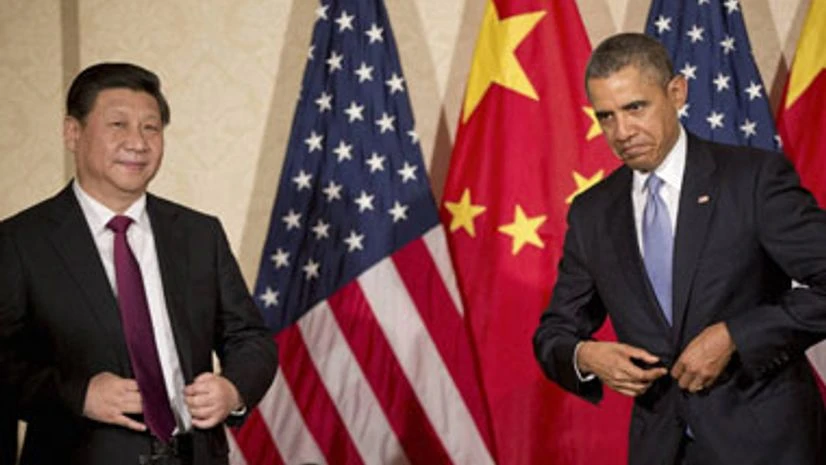US President Barack Obama met China's Xi Jinping at the White House today and emerged with a climate change plan, despite tough talk on cyberspying and human rights.
Xi and his wife Peng Liyuan arrived at 1600 Pennsylvania Avenue to a 21-gun salute and full ceremonial military honors, underlining the huge symbolic importance of the state visit.
Washington and Beijing are at loggerheads over spying and China's claims in the South China Sea, but their relationship underpins the entire global economy.
More From This Section
The leaders emerged from the talks brandishing a joint statement committing their countries to emissions cuts and a "common vision ... Pointing toward a low-carbon transformation of the global economy this century."
For its part, China confirmed in a joint statement that it "plans to launch in 2017 a national emission trading system covering power generation, steel, cement."
The United States meanwhile highlighted the finalization of its Clean Power Plan, which it said would "reduce emissions in the US power sector by 32 percent by 2030."
China will also set aside USD 3.1 billion as a fund to help developing countries fight climate change.
The initiatives add to emissions curbs pledged last year by China and the US in a bid to forge a UN climate pact, scheduled to be sealed in Paris in December.
Environmental campaigners hailed the announcement.
The climate change announcement was a clear success, and came despite Obama taking a firm tone on the other issues troubling the trans-Pacific relationship.
"Even as our nations cooperate, I believe and I know you agree, that we must address our differences candidly," Obama said as he welcomed Xi.
The US leader stressed Washington's attachment to human rights, and tacitly referred to allegations that China's spies have hacked US firms for commercial gain.
"We believe nations are more successful and the world makes more progress when our companies compete on a level playing field," Obama warned.
And he called for international disputes to be "resolved peacefully" -- an implicit reference to China's disputed territorial ambitions in the South China Sea.
Xi's opening remarks were less pointed, but he warned of the need for mutual respect of each other's sovereign rights and the importance of economic cooperation.
"We have no choice but to seek win-win cooperation," Xi said. "Let us work hand in hand with great resolve to write a new chapter in China-US relations."
The two leaders were expected to hold a joint news conference following the talks.

)
